Four Atlantic City Community Development Corporations Each Receive $1 Million for Neighborhood Revitalization Efforts
04/02/2024
| Media Contact: David Zuba, Public Relations Manager and Copywriter | (609) 343-4933
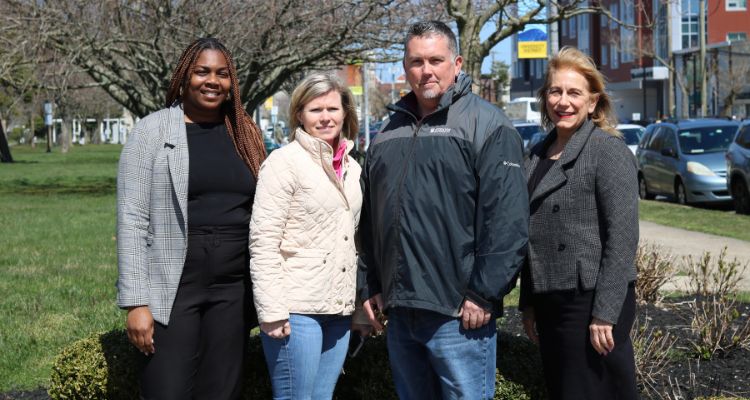
ATLANTIC CITY — Four Atlantic City Community Development Corporations (CDC) each received $1,000,000 in Neighborhood Revitalization Tax Credit Program (NRTC) funds from the State of New Jersey’s Department of Community Affairs, it was announced on Thursday, March 28, to improve commercial businesses and their facades, offer housing rehabilitation grants, clean and safe initiatives, community programs, outreach and education, and career training.
The four nonprofit entities and their respective projects to receive funding are the Atlantic City Development Corporation’s (ACDEVCO) Chelsea Neighborhood Plan 2024 project, the Atlantic County Economic Alliance and Ducktown CDC’s Revitalize Ducktown project, the AtlantiCare Foundation’s Midtown in Motion Revitalization Plan and Atlantic Cape Community College’s Inlet Community Development Corporation’s Atlantic City Inlet NOW! project.
City of Atlantic City Mayor Marty Small, Sr. is excited and hopeful for the citywide benefits that this funding will bring to the city and its residents.
“Our neighborhoods now have the resources at their disposal to do things they may not have been able to do in the past, like housing rehabilitation and facade improvements,” Small, Sr. said. “As mayor, I will always do everything I can to better improve the lives of our residents, and this funding will go a long way in seeing that goal through, by giving our neighborhoods the necessary tools to succeed and grow.”
State of New Jersey District One Assemblyman and former Atlantic City Mayor Don Guardian feels that the four CDCs are the perfect way to achieve Atlantic City’s goals of improving the quality of life for its residents, businesses and visitors.
“It’s great to see this funding come together. It's a great fit for Atlantic City because it specifically addresses the needs that are critical to each of the four communities that their respective CDCs represent,” Guardian said. “The CDCs have been successful so far in finding programs that make the most sense in their respective communities, such as improving safety, building parks, creating programs for residents, helping businesses and first-time home buyers.
____________________________
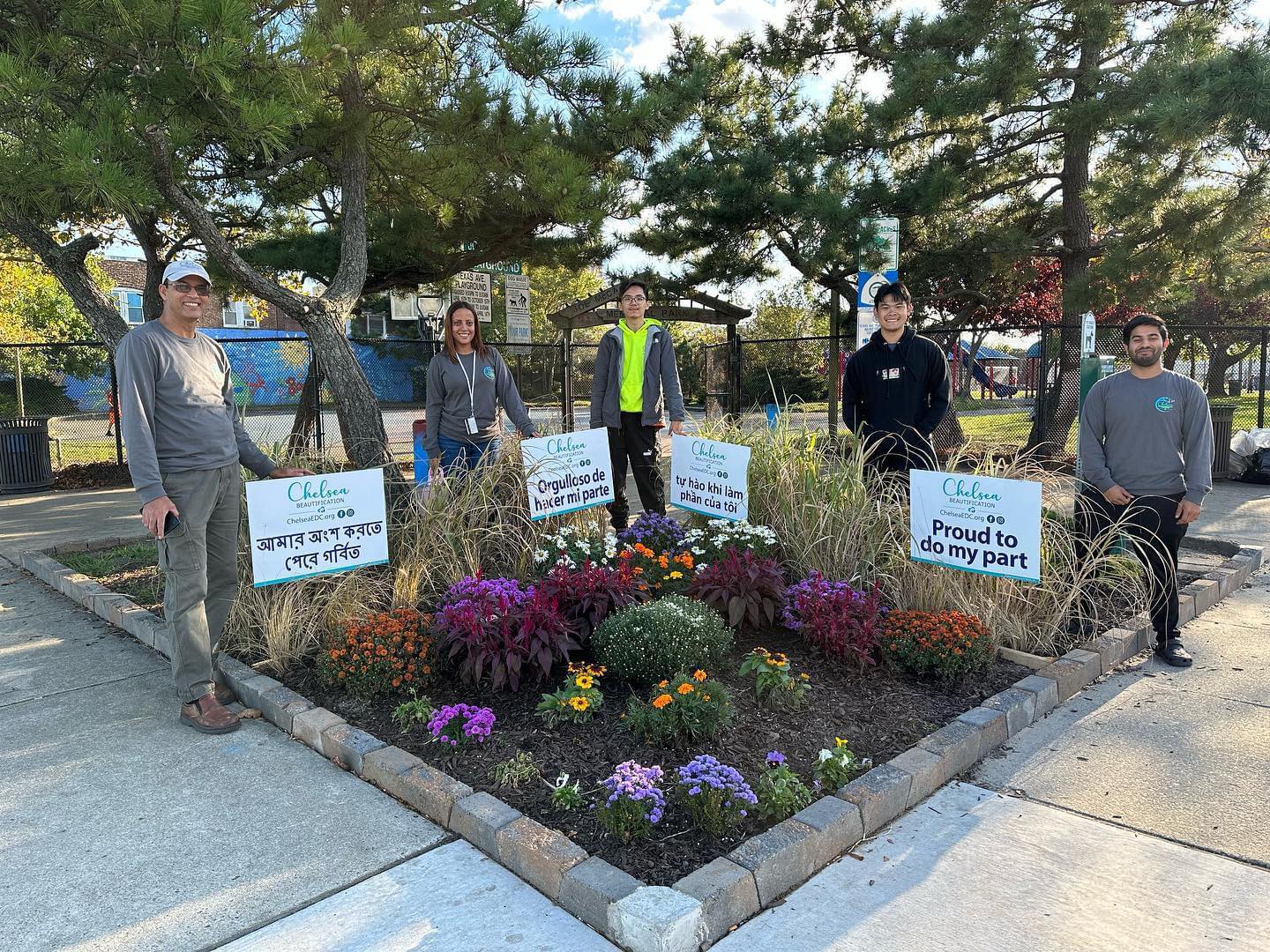 The Chelsea Economic Development Corporation (EDC) was established in 2019 to increase economic opportunity in the Chelsea neighborhood of Atlantic City. The EDC’s actions are based on a community-driven, 10-year plan with 44 strategies to strengthen community bonds, improve public safety and housing opportunities, support local businesses, and enhance career training, resident wellness, and recreation.
The Chelsea Economic Development Corporation (EDC) was established in 2019 to increase economic opportunity in the Chelsea neighborhood of Atlantic City. The EDC’s actions are based on a community-driven, 10-year plan with 44 strategies to strengthen community bonds, improve public safety and housing opportunities, support local businesses, and enhance career training, resident wellness, and recreation.
Chelsea EDC board members and staff are diverse and connected to the Chelsea neighborhood as residents, employees, and business owners.
The Chelsea Neighborhood Plan is committed to:
- Expanding its community events throughout the year to celebrate the neighborhood’s cultural diversity that is evident in its residents, businesses and community organizations. In 2024, 15 community-based events will be held featuring music, art festivals, international food events, holiday tree lighting, fitness classes, block parties and community meetings.
- Prioritizing social services, streetscaping, public art, security cameras, block makeovers and street cleanup campaigns through the Beautify Chelsea Program.
- Encouraging homeownership through grants available to Chelsea renters and workers.
- Assisting Chelsea merchants through grants, technical support and various entrepreneurial resources.
- Offering residents training, education and skills development to procure better careers and higher wages.
“ACDEVCO and Chelsea Economic Development Corp. (Chelsea EDC) are grateful for receiving NRTC funding for a fourth year, allowing us to continue to put the community’s vision into action. We are excited to work with the other CDCs, support each other and share in the lessons learned,” said Elizabeth Terenik, president, Chelsea EDC. “The funds are used to increase economic opportunity, with an emphasis on public safety and beautification. Home ownership is also a top priority, as it creates neighborhood stability and wealth-building for our residents.”
____________________________
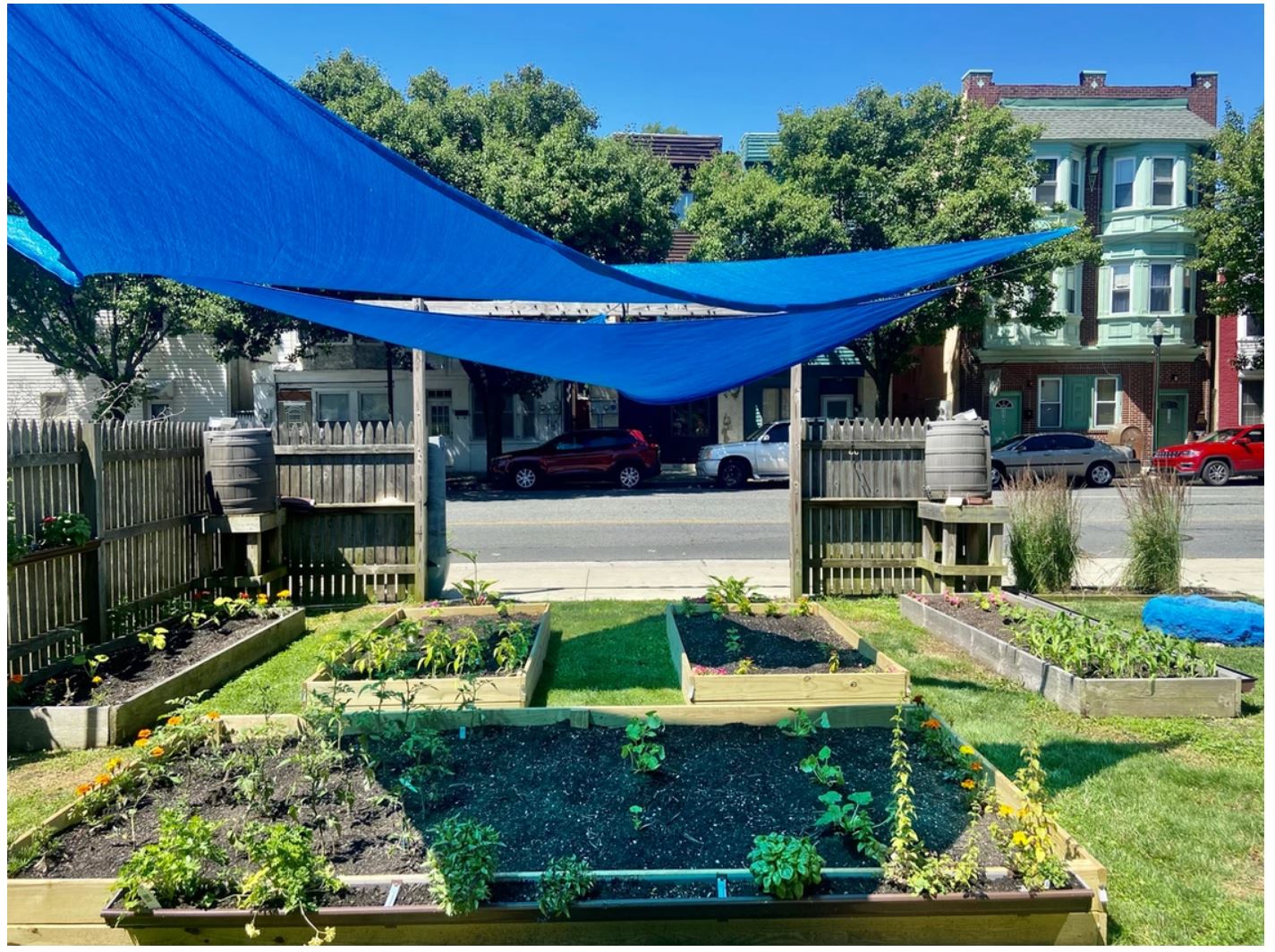
In 2022, the Ducktown CDC partnered with the Atlantic County Economic Alliance as a fiscal sponsor for the New Jersey Neighborhood Revitalization Tax Credit Grant. Through that partnership, an updated neighborhood plan was created. The mission of the CDC is to enhance the quality of life in the Ducktown neighborhood for residents and businesses, plan for the future well-being of its diverse communities, and balance the physical, economic, and social needs of neighborhood residents.
The Ducktown CDC is committed to:
- Improving neighborhood housing stock by providing grants to low-income families, rehabilitating the interiors of eight homes, rebuilding the facades of six existing homes through grants valued at $9,000 each and razing three abandoned homes.
- Providing microgrants worth $8,000 each to five neighborhood small businesses to encourage growth and sustainability; workshops with business experts; replace four existing business facades through grants with $14,000 each; and create two murals.
- Installing 18 concrete planters in front of neighborhood businesses, four welcome signs, wayfinding signage directing residents and visitors to 10 historic and cultural locations, and installing 50 light post banners.
“The Ducktown Neighborhood CDC is excited to receive the NRTC grant again and looks forward to building on the foundation of successful projects over the past year. This is a joint effort between the residents and business owners in the neighborhood,” said Michael Cagno, president, Ducktown CDC. “The grant award will assist with such things as community development, infrastructure improvement, education, public safety, and cultural celebrations.”
____________________________
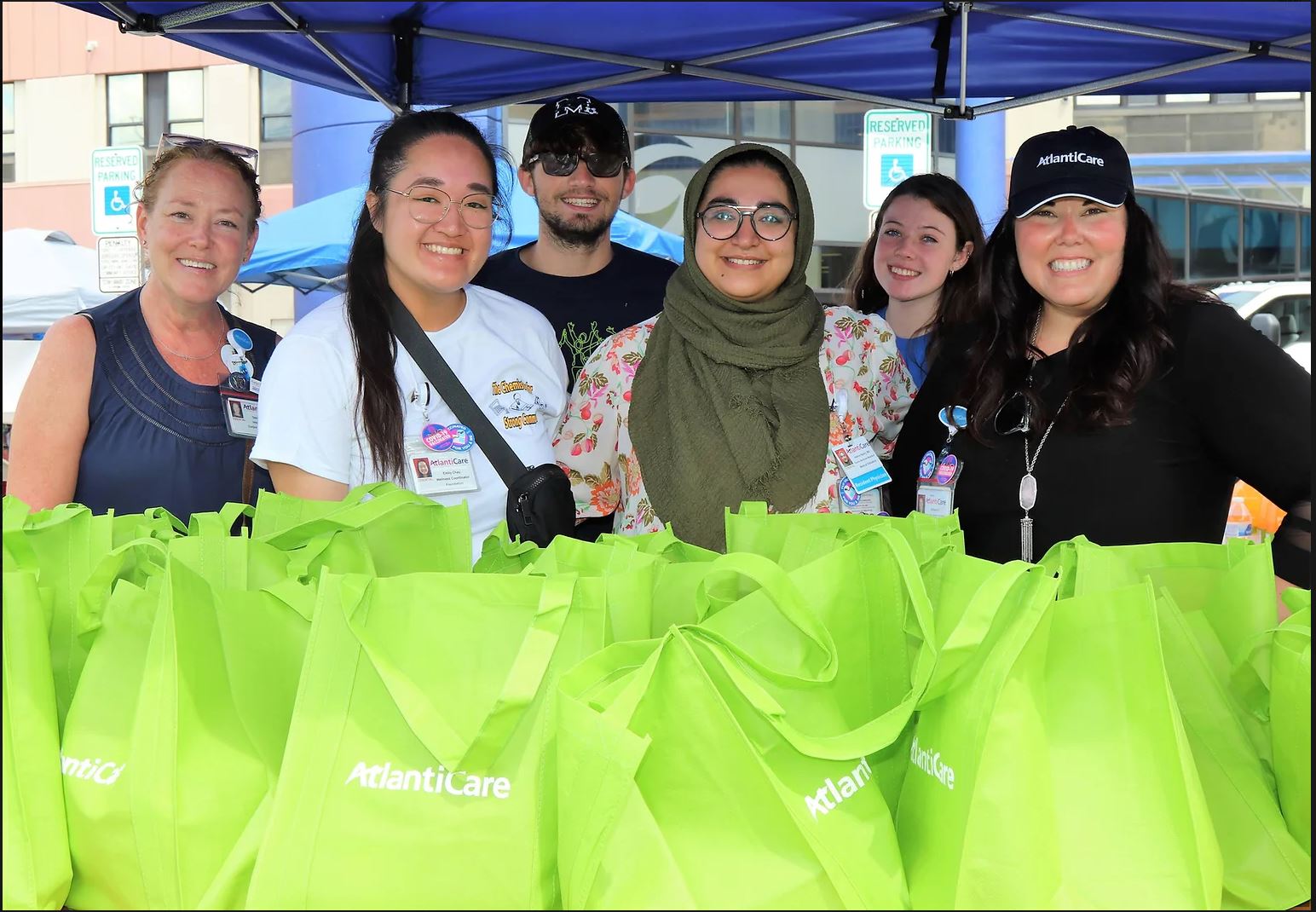
The AtlantiCare Foundation’s Midtown in Motion Program is committed to:
- Continuing its neighborhood beautification efforts through expanded planter installations, street side gardening projects, unique wayfinding signage and murals.
- Supporting local businesses by offering grants up to $5,000 for commercial facade repairs, minor infrastructure investments and security enhancements.
- Reviving the historically-significant Midtown arts and culture scene with festivals, concerts, dancing and fitness classes in the neighborhood’s three outdoor parks.
- Rehabilitating existing housing by offering grants of up to $25,000 to current homeowners to complete necessary repairs. Meanwhile, the AtlantiCare Foundation is planning to, either through partnerships or direct involvement, rehabilitate existing unoccupied housing units in the neighborhood.
- Mobilizing an outreach and educational team to ensure that neighborhood residents are knowledgeable and aware of the community resources that are available to them at all times.
“The AtlantiCare Foundation and the Midtown CDC, which supports local businesses and residents with a variety of services, are thrilled to be awarded NRTC funds for the third year in a row,” said Samantha Kiley, vice president, Community Health & Social Impact, AtlantiCare. “This year’s funding will enable us to continue our neighborhood beautification efforts, support local businesses with grants and educational resources, and carry forth our commitment to the creation of additional housing units. We continue to reevaluate how we can best support both our residents and businesses in Midtown.”
____________________________
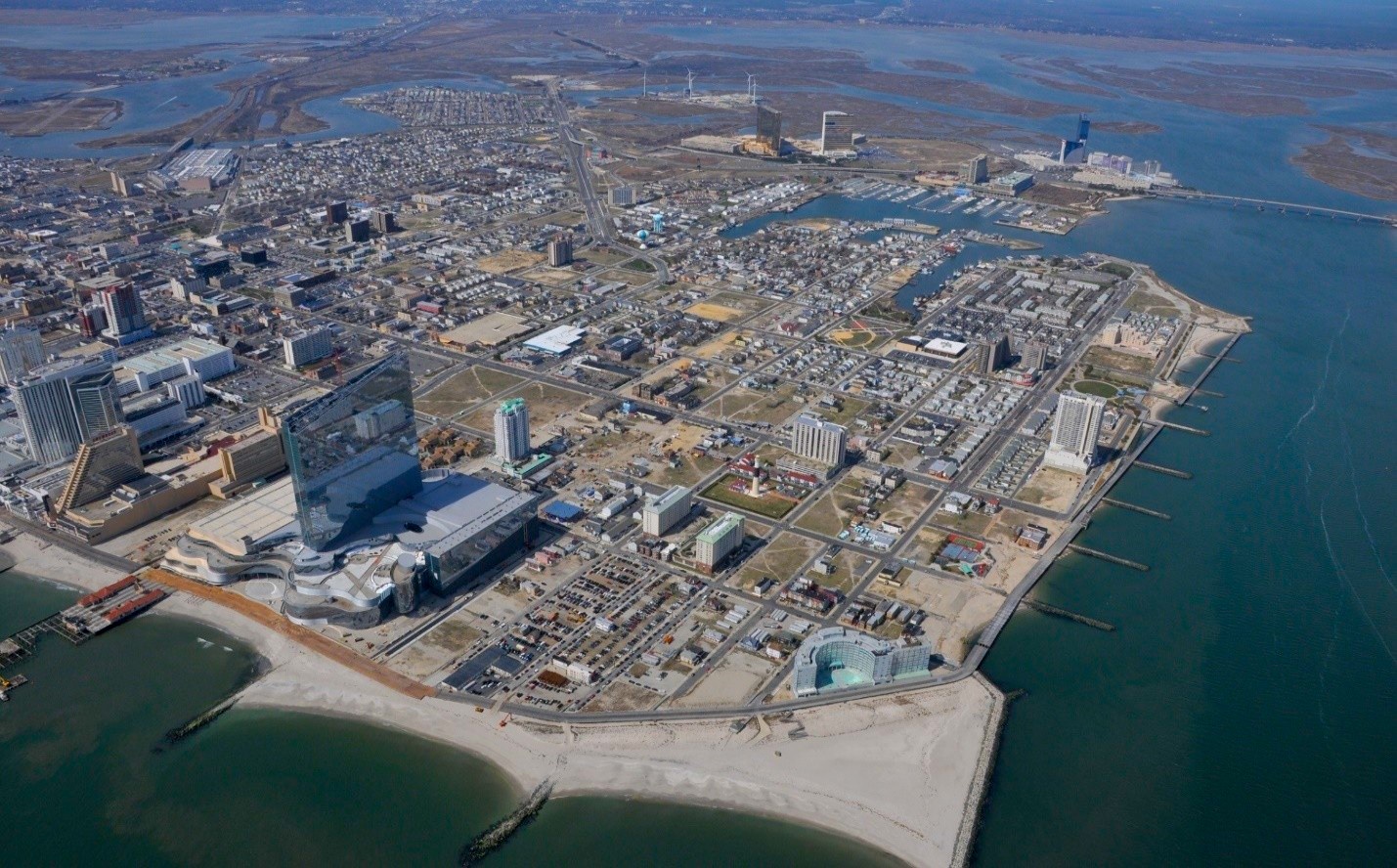 The Inlet Community Development Corporation 501(c)(3) was established in mid-2023. The Inlet Revitalization Action Strategy includes many community-endorsed initiatives that have been identified as critical for improving outcomes for neighborhood residents and businesses. Public meetings, focus groups, and individual interviews were conducted with Inlet residents and business owners with the goal of developing a strategy that was truly resident driven.
The Inlet Community Development Corporation 501(c)(3) was established in mid-2023. The Inlet Revitalization Action Strategy includes many community-endorsed initiatives that have been identified as critical for improving outcomes for neighborhood residents and businesses. Public meetings, focus groups, and individual interviews were conducted with Inlet residents and business owners with the goal of developing a strategy that was truly resident driven.
The Inlet CDC is committed to:
- Housing rehabilitation by improving 10 existing homes so they meet current code enforcement requirements and Energy Star standards.
- A commercial rehabilitation and facade improvement program, overseen by the Atlantic County Improvement Authority (ACIA), to provide funds for local businesses in need of a “facelift” to make the Inlet commercial corridor vibrant for its residents and visitors.
- Homeownership Education and Assistance Program to provide educational and financial support for Inlet homeowners to maintain and sustain their homes.
- An Inlet-resident-led committee, with support from the Inlet CDC and ACIA, to oversee the issuing of five grants to Inlet businesses and microenterprises (a business with five or fewer employees) to help them purchase equipment, get business plan/development training and retail space improvements.
- Park and streetscape improvements, expanded arts and community programming events, Inlet marketing initiatives, clean and safe initiative and a full-time staff to help oversee the Inlet CDC itself.
"I am most excited to work collaboratively with the CDCs, City Government and the DCA to move the needle in redeveloping Atlantic City," said Dr. Natalie Devonish, vice president, Student Affairs and Enrollment Management at Atlantic Cape.
The NRTC Program provides businesses with a 100% tax credit for funds that are provided to nonprofit entities tasked with carrying out comprehensive revitalization plans in their respective communities. These nonprofit entities must utilize at least 60% of the funds for housing and economic development projects while the remaining 40% of the funds may be used for support services and other neighborhood revitalization activities.
Visit the following CDC websites for more information:
ACDEVCO/Chelsea EDC chelseaedc.org and acdevco.org
Ducktown CDC acducktown.com and aceanj.com
Midtown CDC midtownacnj.org and atlanticare.org/midtown-in-motion
Inlet Community Development Corporation (ICDC) atlanticcape.edu/inlet and acinlet.org
About Atlantic Cape Community College
Atlantic Cape Community College is a Middle States accredited, 2022 Achieving the Dream Leader College and Hispanic Serving Institution proudly serving the residents of Atlantic and Cape May counties. As a comprehensive, two-year community college, Atlantic Cape offers 47 undergraduate degree programs, and 33 certificate and workforce development professional series programs at its Mays Landing, Atlantic City and Cape May campuses. Atlantic Cape is home to the renowned Academy of Culinary Arts, rated the top culinary school in New Jersey, and for more than 50 years, our highly-acclaimed Nursing program. Atlantic Cape also partners with several four-year universities to offer students the opportunity to earn a bachelor’s degree without having to leave home.
